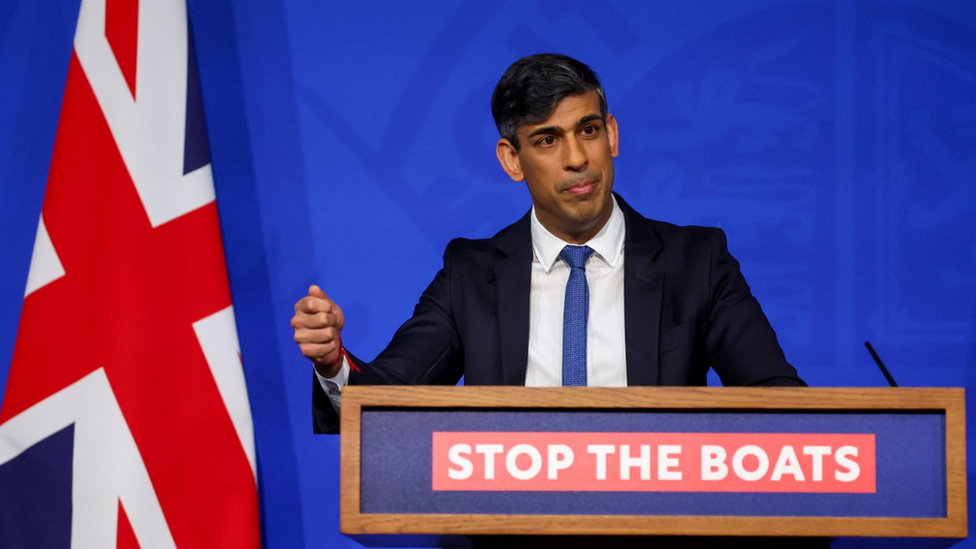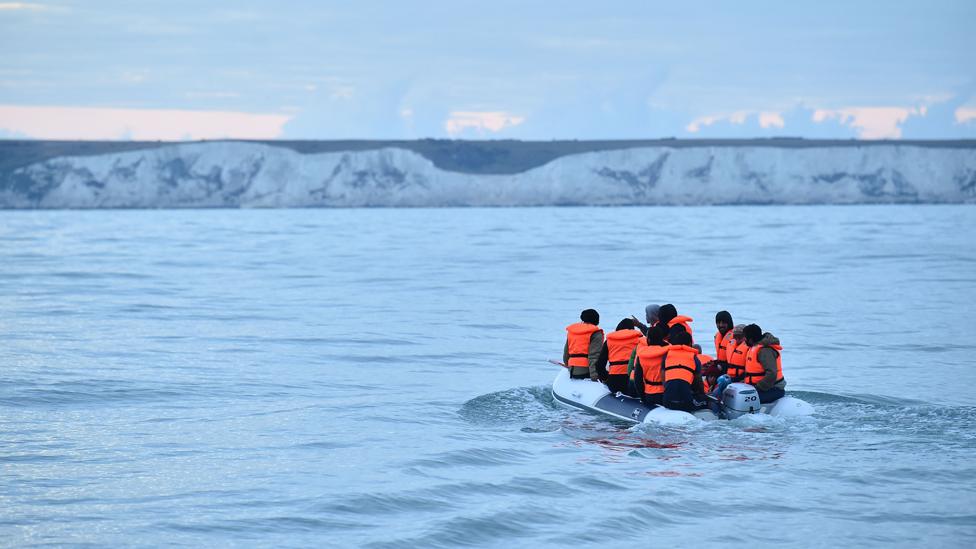Migrants: Some due for removal from the UK could be electronically tagged
- Published
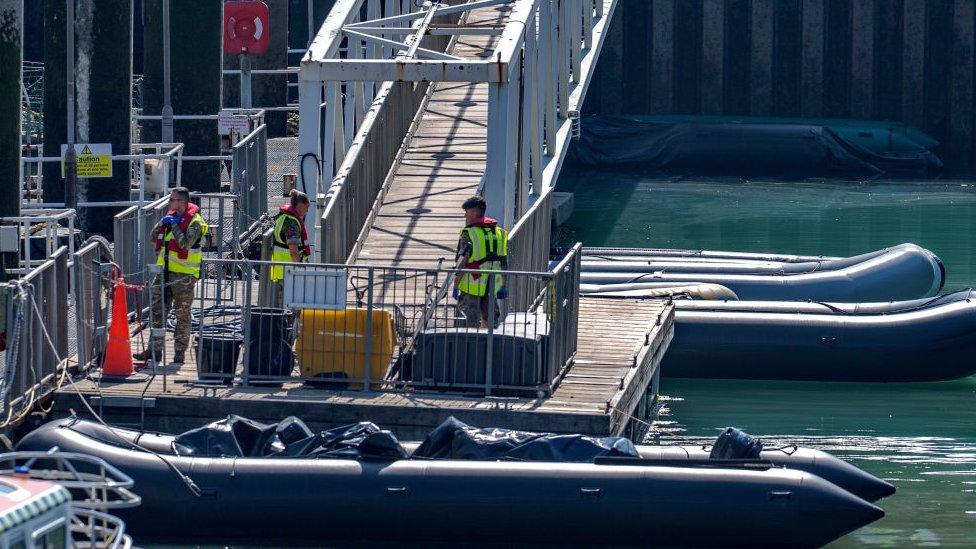
Some asylum claimants who arrived in the UK in small boats or in the back of lorries could be electronically tagged under a new Home Office trial, external.
A 12-month trial could apply to adults due to be removed from the UK after arriving via what the government calls "dangerous or unnecessary" routes.
Boris Johnson said it was important to "make sure asylum seekers can't just vanish into the rest of the country".
Critics say the plan treats those fleeing persecution as criminals.
The pilot comes days after the first flight taking asylum seekers from the UK to Rwanda was cancelled following a last-minute intervention by the European Court of Human Rights (ECHR).
The first to be tagged will likely be people who successfully challenged their removal from that flight.
The Home Office said the trial, which began on Thursday in England and Wales, would test whether tagging helps maintain regular contact with asylum claimants and progresses their claims more effectively. It will also collect data on how many people abscond from immigration bail.
Even though the trial has begun, the Home Office would not say whether any migrant had been tagged yet.
People who have been tagged may be subject to a curfew, and those who fail to comply with their conditions could be taken to detention, or prosecuted.
The guidance says those who are informed that they are to be removed from the UK may be at an increased risk of absconding and have less incentive to comply with immigration bail conditions.
The Home Office guidance says it will not include children or pregnant women.
Caseworkers must also consider whether the device would cause serious harm to the person's mental or physical health, or whether they have been a victim of torture or modern slavery.
However, the guidance says these factors do not in themselves prohibit imposing a tag.
Electronic tags are already used in the UK alongside court or prison orders, including for curfews.
The prime minister told reporters on Saturday the UK was a "very, very generous welcoming country", citing recent schemes for people arriving from Hong Kong, Afghanistan and Ukraine, but said "when people come here illegally, when they break the law, it is important that we make that distinction".
"That is what we are doing with our Rwanda policy. That is what we are doing with making sure that asylum seekers can't just vanish into the rest of the country."
The government recently introduced the Nationality and Borders Act, external which made it illegal to enter the UK without permission.
On Friday, 230 people in five boats reached the UK by crossing the Channel, according to the latest Ministry of Defence update.

Analysis
By Simon Jones, BBC reporter
Ministers and Home Office officials were left hugely frustrated this week when their attempt to send a first group of asylum claimants to Rwanda failed.
For years, they have been looking at ways of trying to bring down the number of people crossing the Channel in small boats - a figure that is already over 11,000 this year.
The idea of tagging will, the government hopes, show it is serious in getting tough on those it believes are exploiting the asylum system.
But it's not clear how many people will be tagged - or how keen immigration judges will be to introduce electronic monitoring as part of any bail conditions.
And groups supporting refugees say once again government policy will lead to vulnerable people being demonised.
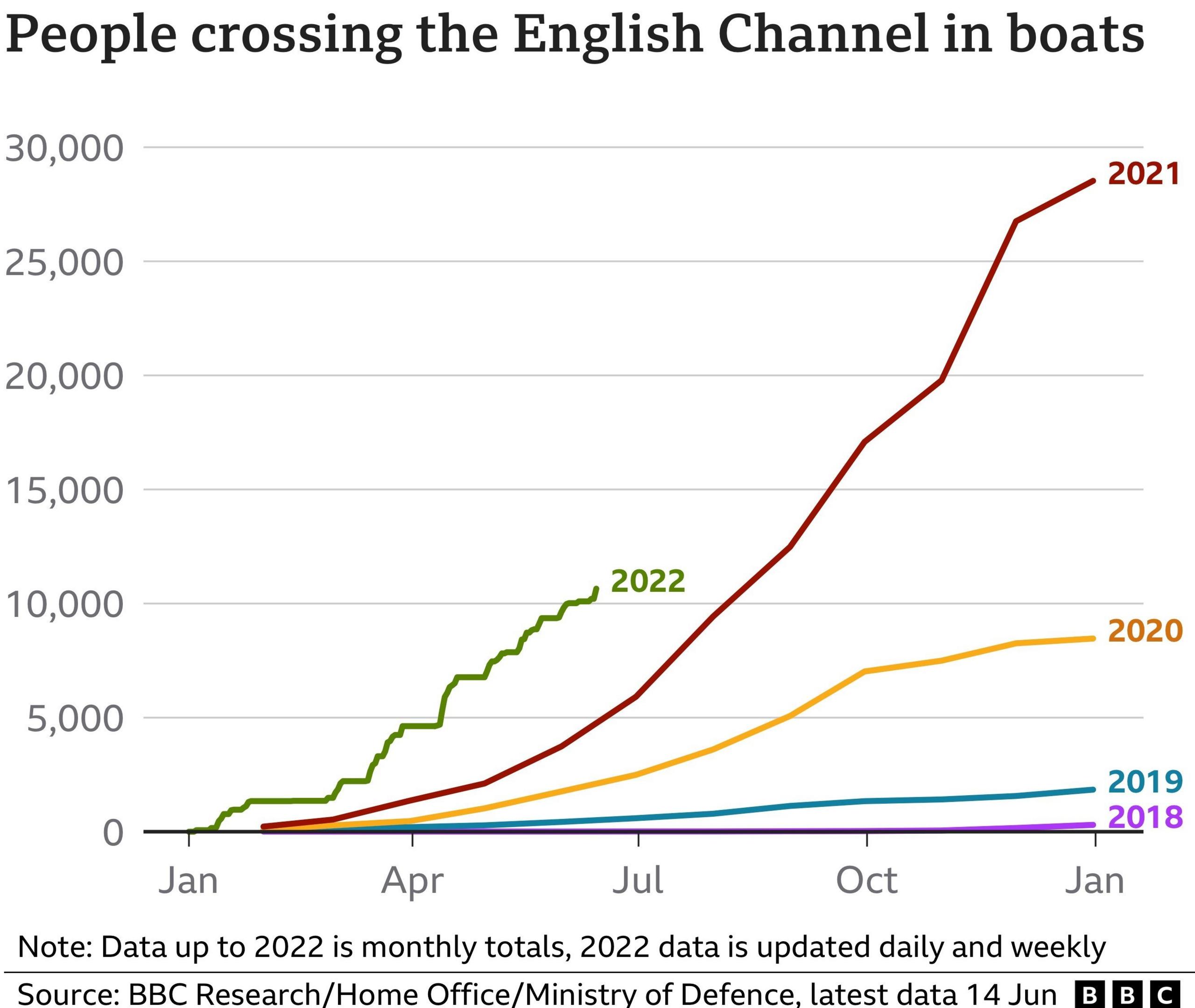

Labour leader Sir Keir Starmer said the government was "chasing headlines" and said he did not think the migration plans would be able to stop criminal gangs smuggling people across the Channel.
He called for a "serious and grown-up" response working with French authorities.
Enver Solomon, chief executive of the Refugee Council, said it was "appalling" the government was treating people fleeing "war, bloodshed and persecution" as criminals.
"This draconian and punitive approach not only shows no compassion for very vulnerable people; it will also do nothing to deter those who are desperately seeking safety in the UK."
He said the tagging trial was a "diversion tactic" from the government's "complete failure to run the asylum system in an orderly fashion", saying there were more than 100,000 awaiting a decision on their case.
But a Home Office spokesperson said: "The government will not be deterred as we plan for the next flight to Rwanda.
"We will keep as many people in detention as the law allows, but where a court orders that an individual due to be on Tuesday's flight should be released, we will tag them where appropriate."
Tony Smith, the former head of Border Force, told the BBC he thought tagging those eligible to be removed was "sensible" in principle but said more details would be needed on the criteria for the measure.
It comes as Home Secretary Priti Patel said a decision by a European court which effectively grounded the first Rwanda-bound removal flight was "absolutely scandalous" and politically motivated.
Judges at the ECHR granted an injunction that left a chartered plane to Kigali unable to depart, a decision Ms Patel told the Daily Telegraph had been "opaque".
Mr Johnson described the European court's intervention as a "weird last-minute hiccup" but said the government was very confident in the lawfulness of the Rwanda policy and would persevere with it.
The ECHR protects civil and political rights established in the aftermath of World War Two. It is separate to the EU.
The Rwanda plan, announced by the government in April, intends to give some migrants who cross the Channel to the UK a one-way ticket to Rwanda to claim asylum there instead.

'THEY ESCAPED THE TALIBAN': The extraordinary story of the Afghanistan women's football team
GRENFELL: Five years on, has anything changed?

- Published15 June 2022
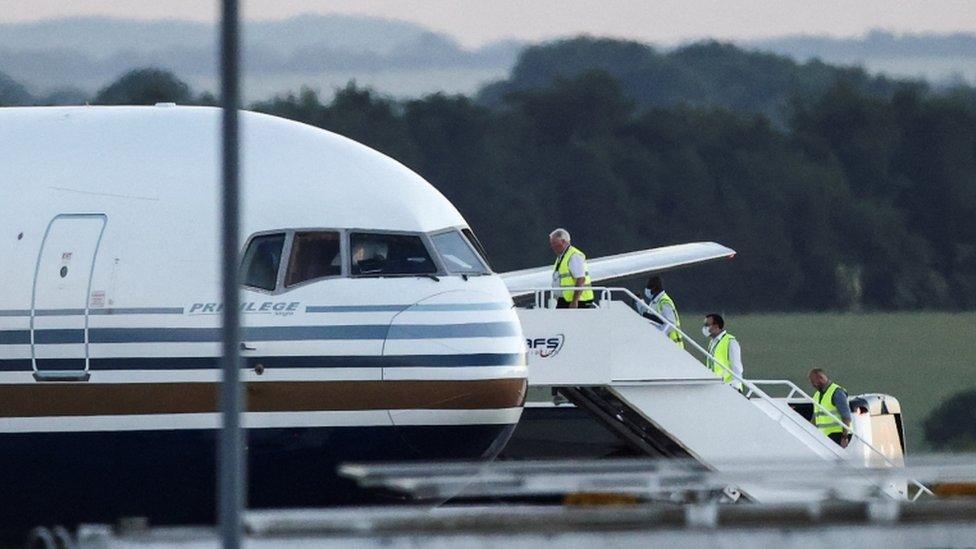
- Published14 April 2022
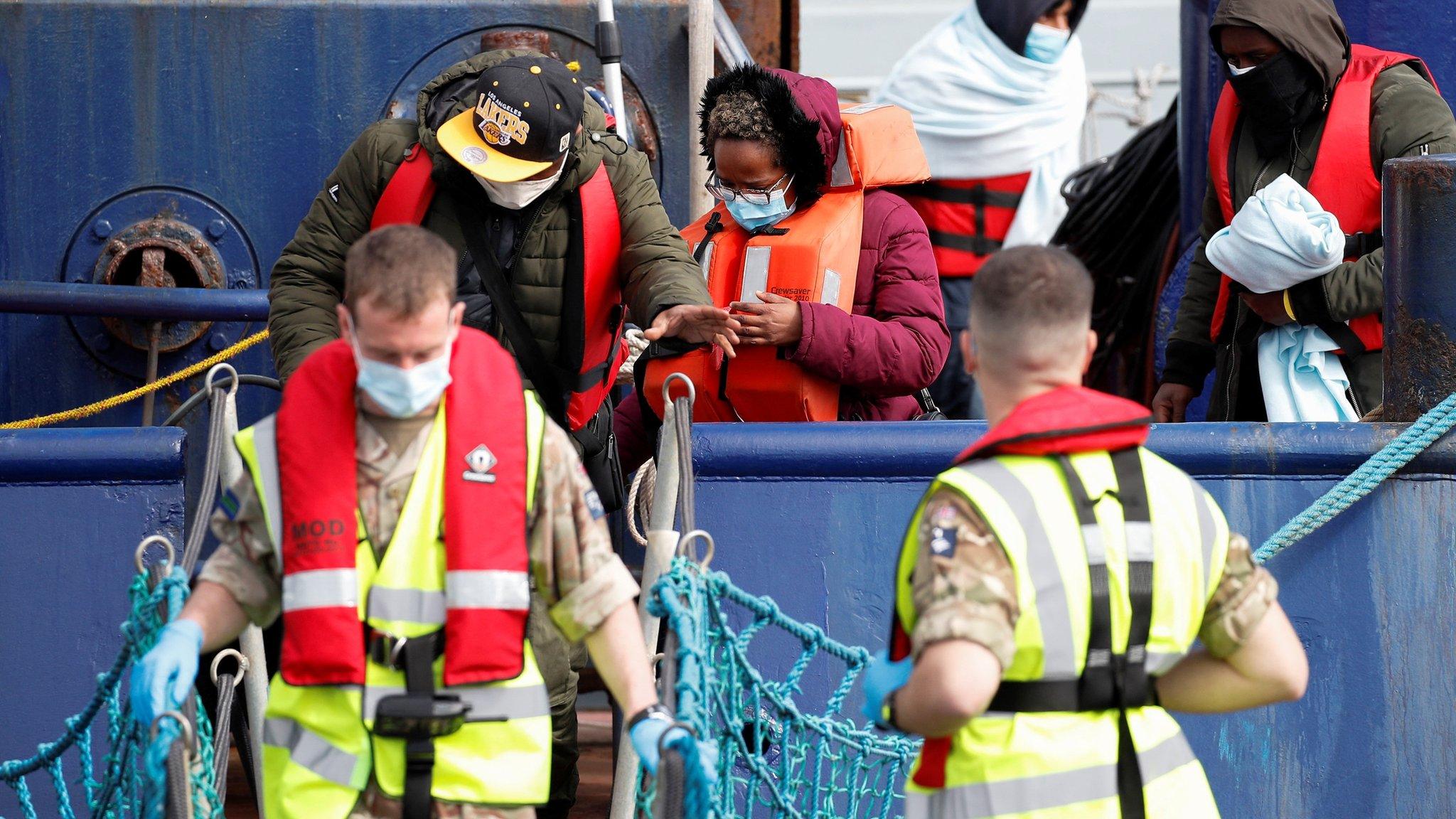
- Published13 June 2024
